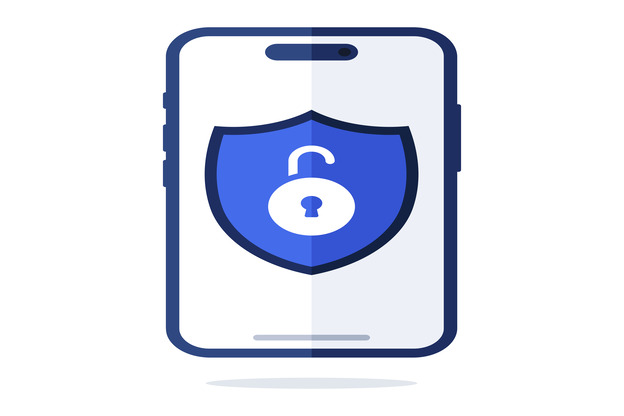
Hosting from Anywhere: How VPNs Let You Manage Your Site Without Geographic Limits
- VPNs allow stable, region-consistent access to hosting dashboards
- They protect login credentials and activity on public networks
- A reliable VPN reduces session interruptions and login issues
- The proper VPN setup improves hosting workflows across devices
You might not realise how often your physical location gets in the way of managing your website. The tools themselves are designed to be used anywhere; however, geographic blocks, inconsistent access, and account verification issues are still standard when travelling or working remotely. This is especially true if your hosting service is based in a different country. A VPN can quietly resolve most of these roadblocks without altering your workflow. It routes your connection through a secure tunnel and gives you control over your visible location. The result? Fewer interruptions, less stress, and more reliable access to your hosting dashboard from any place you happen to be.
Why Remote Hosting Matters More Than Ever
You’re no longer tethered to a fixed location to manage a website. Whether you’re working from a cafe in Perth or backpacking through Europe, being able to access and operate your hosting account securely is essential. But this flexibility comes with challenges. Geographic restrictions, IP blocking, and region-locked dashboards can quickly turn website management into a headache. VPNs offer a practical solution, not only for accessing hosting tools globally but for keeping your login activity private and consistent. For developers, freelancers, and business owners, this can mean uninterrupted workflows, no matter where work takes you.
The pandemic normalised remote operations, but even now, infrastructure hasn’t fully caught up. Many hosting platforms still flag international access attempts or issue captchas for every login. If you’ve ever had a client call because you couldn’t get into cPanel while overseas, you already know how frustrating this can be. VPNs fill the gap. They let you maintain a familiar online identity even when you’re on unfamiliar Wi-Fi. You stay logged in, connected, and productive.
Hosting Across Borders Without the Hassle
One of the overlooked frustrations of managing sites abroad is hitting login errors or authentication issues simply because your IP address changes. Hosting platforms often interpret this as suspicious activity. VPNs solve this by allowing you to select a consistent IP region, which prevents those security flags. If you’re using Australian-based providers, you’ll have better reliability staying connected through an Australian server. For instance, many small businesses choose to use VentraIP for website hosting services because of its strong local infrastructure. Pairing that with a VPN means you can work from anywhere without triggering unnecessary login roadblocks or having your access throttled.
In practical terms, it means fewer headaches. You don’t have to worry about being locked out of your admin panel or suddenly failing two-factor authentication because you’re logging in from Bali today and Berlin tomorrow. It also means your session data remains consistent, which helps avoid corrupted form inputs or upload errors on the backend. By routing your traffic through a stable VPN, your hosting experience becomes smoother, especially when using location-sensitive tools like analytics dashboards or security plugins.
VPNs and Data Protection in Shared Hosting Environments
Security is rarely the first thing people think about when logging into a hosting dashboard, but it should be, especially on shared hosting plans. These environments are convenient and cost-effective, but they also bring risk. If you’re logging in from public or unsecured networks, the information you send can be intercepted. That includes usernames, passwords, and even control panel actions. A VPN adds a critical layer of security by encrypting your connection before it reaches the host. It doesn’t change your hosting provider, but it does tighten the way you access it.
This matters most when managing sensitive tasks, such as transferring files via FTP, modifying DNS records, or deploying updates to a live site. A momentary lapse in connection security could expose your site or client data to opportunistic attackers. With a VPN, your credentials and session data are protected from anyone snooping on the same network. It also prevents local ISPs from tracking, which is still surprisingly common in many countries. While shared hosting will never be as secure as a dedicated server, using a VPN while you manage it reduces one of the most significant weak points: your device’s entry point to the system.
Managing Your Hosting with Fewer Interruptions
VPNs do more than hide your location. They give your connection digital stability. If you’ve ever found yourself getting timed out, kicked off, or asked to re-authenticate multiple times during a session, there’s a good chance it was due to your IP shifting or being flagged. Hosting platforms, especially those that include security add-ons, monitor for inconsistent logins. A VPN that keeps your region static removes those interruptions from the equation.
This is especially useful if you’re jumping between multiple Wi-Fi connections during the day or using mobile data intermittently. Without a VPN, every switch can cause your IP address to change, which can confuse the hosting platform’s authentication system. The result is wasted time, lost edits, or even broken form submissions. With a VPN in place, the IP remains consistent across networks, and the dashboard interface remains stable. Over time, that consistency means faster deployments, fewer support tickets, and a smoother workflow for everything from backups to plugin updates.
What to Look for in a VPN for Hosting Tasks
Not all VPNs are built with hosting in mind. Many are geared toward streaming, general browsing, or bypassing regional content blocks. When you’re managing a website, your priorities shift. Speed and uptime reliability become more critical than server count. A good VPN for hosting work should offer strong encryption, consistent connection speeds, and access to servers in locations that match your hosting provider’s region. That proximity improves latency and reduces session disruptions, which can be critical when you’re editing time-sensitive content or updating a live storefront.
Another key factor is device flexibility. You’re probably switching between devices throughout your day—laptop, phone, maybe even a tablet. Choose a VPN that supports multiple simultaneous connections without throttling. It should also have a transparent logging policy and straightforward controls. The fewer layers between you and your server, the better. A well-configured VPN won’t get in your way—it’ll quietly improve your connection, protect your access, and let you manage your hosting with fewer headaches.





